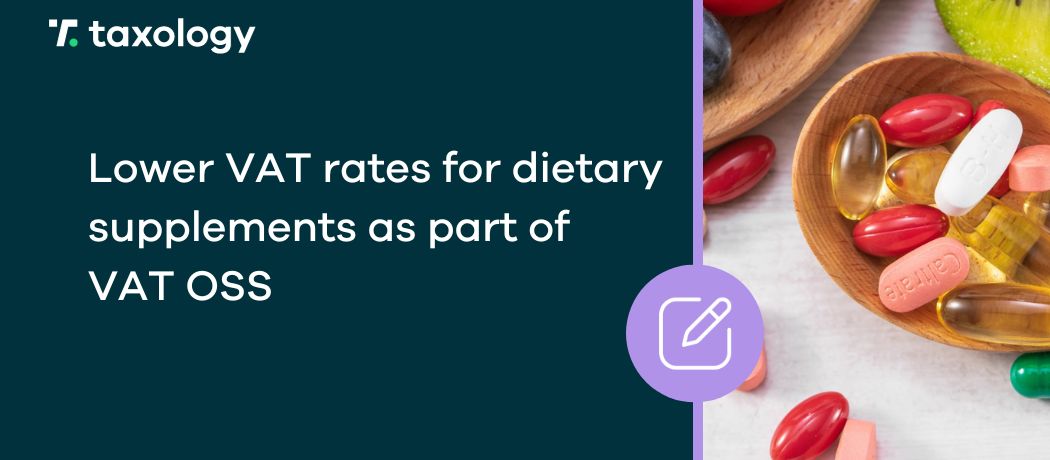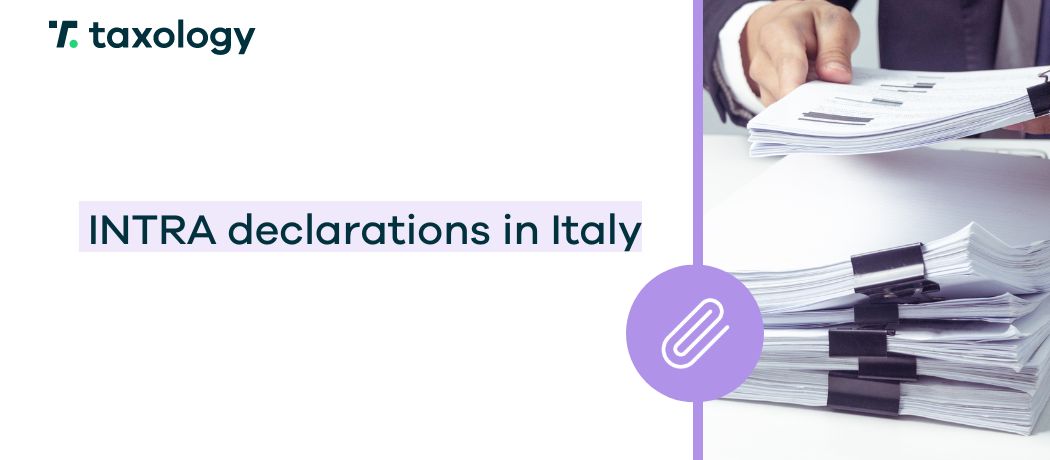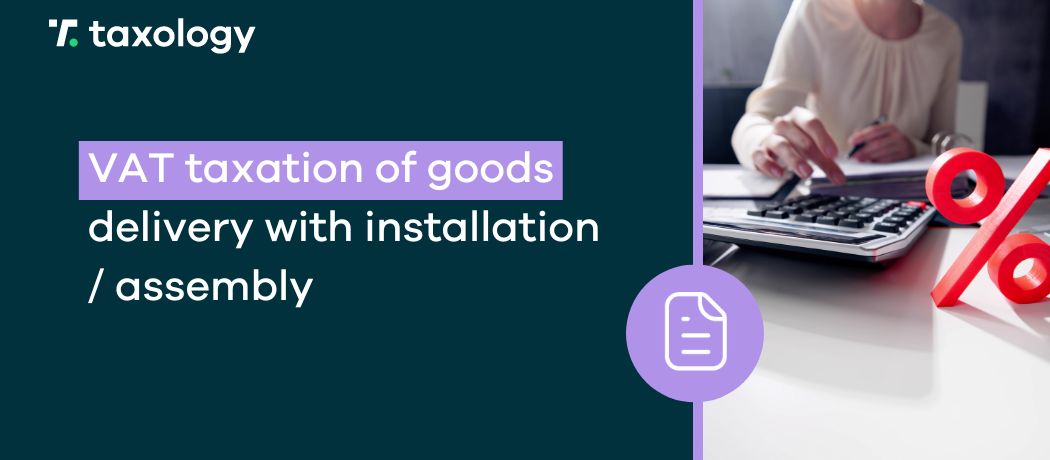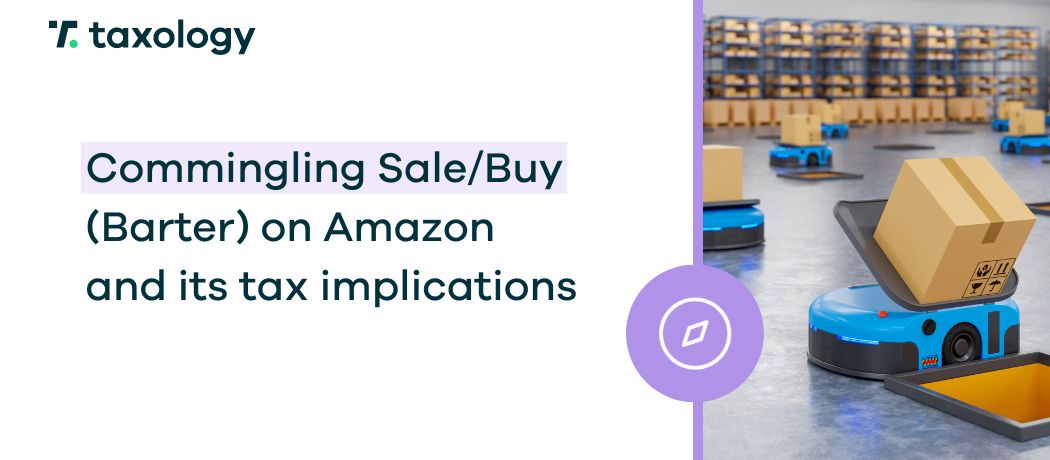Italy ranks as the fourth largest e-commerce market in Europe in terms of value. It is no surprise, then, that it attracts entrepreneurs looking to expand in this direction. However, […]
Read in: 4 minLower VAT rates for dietary supplements as part of VAT OSS in selected EU countries
- Last update: 23.02.2024
- Published: 07.11.2023
- Read in: 5 min
Amid increasing concern for food safety and nutrition, dietary supplements are becoming increasingly popular. Specialty stores have emerged, offering dietary foods designed under medical or nutritionist supervision.
As a consequence, dietary supplements are widely available across many nations, including EU member states. Therefore, entrepreneurs involved in their sale might seek insights into potential preferential VAT rates for these products in other EU countries and how to apply them. For a detailed insight, please read this article, detailing VAT regulations for dietary supplements in selected EU countries.
Invoicing under the OSS procedure
Before exploring the VAT rates applicable to dietary supplements in specific member states, it’s important to address the VAT OSS procedure.
When selling goods to retail customers in other EU countries, sellers should apply the VAT rates corresponding to the customers’ country of residence (where the goods are received). There’s an exception for sales not exceeding EUR 10,000 (which may be subject to taxation in the country from where the goods are dispatched).
The VAT OSS procedure streamlines the settlement of foreign VAT through a consolidated return, eliminating the need for local VAT registration and individual return filings in multiple EU countries where sales occur.
VAT OSS returns are submitted and VAT payments are made on a quarterly basis.
What VAT rate are dietary supplements subject to in Poland?
Before delving into the specifics of member states, it’s important to highlight that in Poland, dietary supplements are subject to the reduced VAT rate of 8%. However, some supplements may be subject to a 23% or 5% rate. Therefore, determining the VAT rate for supplements requires analysis of the specific product. The situation is similar in other EU countries.
Lower VAT on supplements under VAT OSS in Austria
In Austria, food supplements are subject to a VAT rate of 10%. Notably, this rate is applicable only to products listed in Annex 1 of the Austrian VAT Act, encompassing “Various food preparations” (excluding syrups in containers specifically for dispensing by a dispensing system). This classification extends to food supplements, regardless of their form of sale (powder, tablets, etc.).
Lower VAT on supplements under VAT OSS in Germany
Germany offers a reduced VAT rate of 7% according to Section 12 of its VAT Act, applying specifically to listed food products. In legal interpretation, products providing only nutrients such as proteins, carbohydrates, and fats fall under the broad definition of food.
However, products with their own pharmacological effects (such as high-dose mixtures of vitamins and nutrients) primarily classified by the manufacturer as having therapeutic or prophylactic properties for specific diseases on their packaging or leaflet are considered medicinal products, subject to the standard 19% VAT rate.
The classification in the Combined Nomenclature (CN) plays a crucial role. Various food preparations, including dietary supplements (CN 21), are taxed at 7%. Liquid dietary supplements (CN 2023) are subject to the 19% VAT rate, while those categorised as medicinal products (CN 3004) also fall under the 19% rate.
Lower VAT on supplements under VAT OSS in Italy
The official interpretations released by the Italian tax administration confirm that the reduced VAT rate of 10% is applicable to:
- (a) supplies of specific dietary supplements categorised under TARIC codes 2106 and 1806 (Ruling Answers 1 of 4 September 2018 and 8 of 18 January 2019) – these products are identified as dietary supplements based on their therapeutic properties beneficial for treating or maintaining a healthy body;
- (b) The provision of food and beverages intended for direct consumption (Law Principle 9 of 22 February 2019).
However, sales of energy gels and protein drinks are taxed at the standard VAT rate of 22% (Ruling Answer 12 of 28 January 2019).
Lower VAT rate on supplements under VAT OSS in Ireland
The reduced VAT rate of 13.5% is applicable, provided specific labelling requirements for dietary supplements are met.
Lower VAT on supplements under VAT OSS in the Netherlands
A 9% reduced VAT rate is applicable to all types of food items, comprising both solid and liquid products labelled as dietary supplements and intended to supplement the diet (treated as foodstuffs).
Lower VAT on supplements under VAT OSS in Belgium
Products available for human oral consumption are typically taxed at a 6% VAT rate as outlined in item X, number 17 of Table A in Royal Decree No. 20. However, exceptions may apply if they fall under a different category in Table A or are explicitly excluded from the 6% rate.
On the other hand, liquid dietary supplements and similar items usually found in health and nutrition stores, like certain herbal liqueurs, extracts, and vitamin or mineral preparations, also carry a 6% VAT rate. This applies when they are packaged in small ampoules or in containers allowing a maximum daily intake of 1 tablespoon or 15 ml.
Lower VAT rates for dietary supplements under VAT OSS in selected EU countries - summary
Several EU countries offer preferential VAT rates for dietary supplements. However, it’s crucial to note that tax regulations vary between countries, affecting how items like dietary supplements are classified. Therefore, seeking guidance from a tax advisor before entering a new market and utilising its VAT rate is highly recommended.
If you’re seeking more information about preferential VAT rates or need assistance with VAT-related matters or e-commerce accounting, don’t hesitate to schedule a free consultation with our specialists. Whether it’s registrations, settlements, VAT returns, VAT OSS, or VAT EU.
Also, please check out our articles covering reduced VAT rates on coffee and pet food across selected EU countries to gain more knowledge about lower VAT rates.



